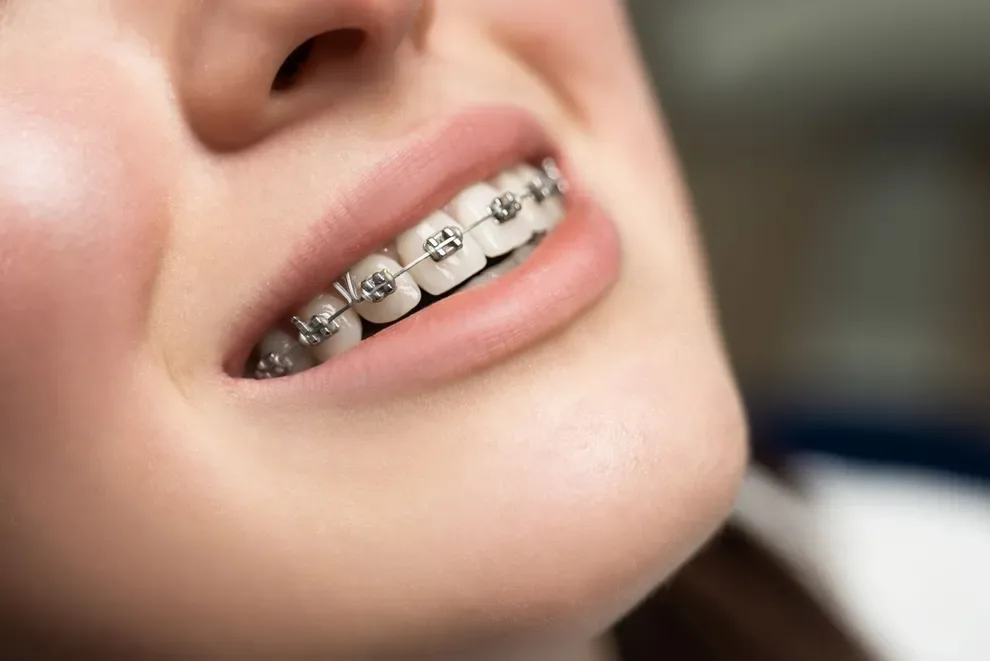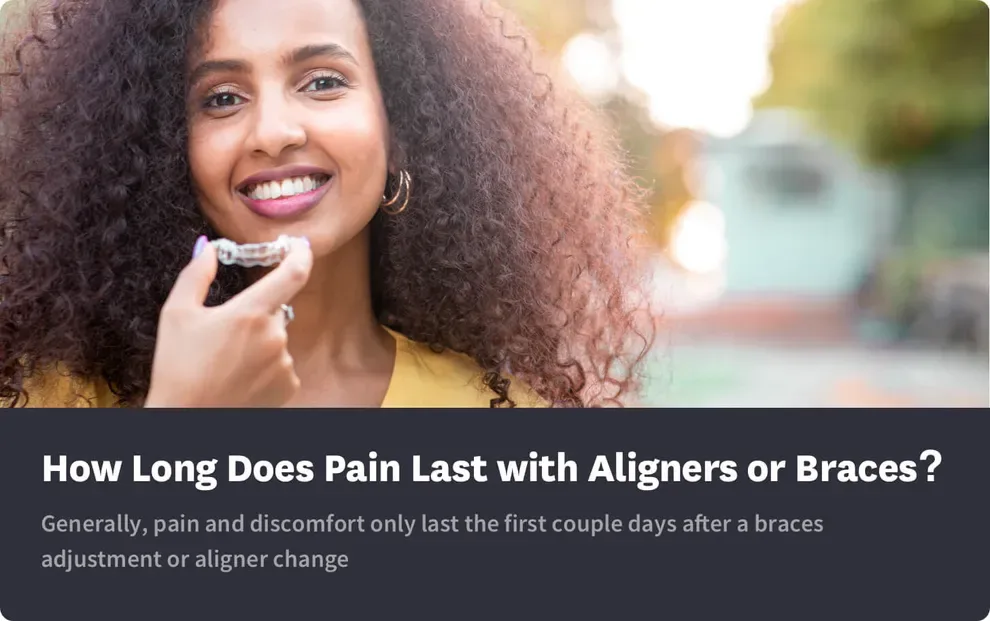How Long Does Pain Last with Aligners or Braces?

Table of Contents
- What Does the Pain Feel Like?
- How Long Does the Pain Last?
- Do Other Factors Matter?
- Call a Doctor
Aligners and traditional dental braces are designed to straighten your teeth and realign your bite. Traditionally, orthodontists employ aligners for mild corrections and braces for making larger shifts within the mouth, but the results between the two products diminish as technologies evolve.
One question asked consistently by people who are candidates for getting either of these teeth-straighteners is: How much will it hurt?
Although there may be some initial pain and discomfort, most people find that it is not a long-term problem.
Once the application stage is done, everyday life is back to normal.
But there are tips and tricks to living with braces and aligners.

What Does the Pain Feel Like?
Nobody wants to deal with intense pain even if it means straighter, healthier and better-looking teeth. The good news is that long-term pain isn’t associated with standard metal braces or more modern aligners.
With braces, a dull to moderate aching pain is common for both young and adults patients. You may also notice some pressure as the wires of the braces begin to do their work.
At the beginning, aligners are typically more comfortable than braces, but many wearers report relatively minor tenderness when they first get them. Aligner wearers also feel a pressure similar to that of braces as the aligners start working.
How Long Does the Pain Last?
The idea of being in constant pain often keeps people who want a healthier mouth and a better smile from getting braces or aligners. For most, discomfort you could experience is often short-lived.
Dental braces are typically most uncomfortable within the first few days. After that, discomfort should begin to subside and become much more manageable for most people.
This is also true of dental aligners, with most users reporting that the first few days are the most painful. Once you become accustomed to your aligners, you’ll likely forget that you’re even wearing them a lot of the time.
It’s important to note that adjustments of dental braces, which are done by your orthodontist, may cause a little discomfort each time. This usually doesn’t last more than a few days as your teeth get used to these adjustments.
With aligners, minor tenderness can be triggered by removal and replacement, particularly if you do it frequently. This varies from patient to patient however, and many people notice no discomfort during this process at all.
Do Other Factors Matter?
Many patients who get dental braces or aligners experience a similar type of discomfort, particularly right at the onset of treatment. For most, pain subsides quickly and tenderness is limited to rare occasions like adjustments made by your orthodontist.
Adult patients interested in braces or aligners often wonder if they will hurt them more than they do teenagers. In general, the answer is no, and the discomfort you experience won’t be any different than what a younger patient will deal with.
The same is true for patients with more misalignment, requiring greater overall corrections. That’s because your orthodontist won’t try to make major changes overnight. Instead, they’ll adjust your braces over time, working to correct your smile and spacing in steps instead of all at once.
If you opt for aligners, you’ll likely get a series of different aligners to wear to over time. These help make corrections gradually in a manner that’s safe, effective and comfortable for patients.
Should You Call a Doctor if the Pain Doesn’t Go Away?
In short, yes.
Pain and discomfort shouldn’t last for more than a week—and certainly no more than 10 days. If it does, you should contact your orthodontist to make sure there are no issues that need to be addressed.
If your pain endures more than a week, chances are there’s something else going on besides braces that are too tight or aligners that are too snug.
Aligner or Braces Pain FAQs
Aligners push your teeth into new positions, and discomfort is (unfortunately) part of the process. Expect to feel a little uncomfortable when you pop in new aligner trays. The pain should be gone within a week.
Yes! As your teeth become accustomed to your new trays, you'll feel less discomfort. But be prepared. When you switch to new trays, the discomfort will probably come back.
Yes, braces cause a good amount of pain and discomfort as they move your teeth. The metal hardware can also damage sensitive mouth tissues, like gums and your tongue, resulting in scrapes and cuts that hurt.
Studies prove that braces are more painful than aligners. They tug harder on your teeth, and the metal can cut your lips, cheeks, and tongue.
The pain from braces is generally worse right after you get your wires tightened. It will dissipate over the following days and weeks, but expect that more acute pain every month or so.
